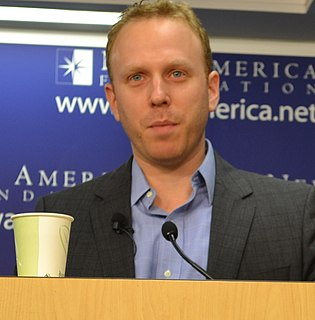A Quote by Max Blumenthal
It is depressing but not shocking to witness the liberal intelligentsia embrace Ari Shavit so enthusiastically. Shavit is someone who is as consistently wrong as Thomas Friedman on major issues, and at least as much a courtier of power.
Related Quotes
When I heard the book (Thomas Friedman's latest) was actually coming out, I started to worry. Among other things, I knew I would be asked to write the review. The usual ratio of Friedman criticism is 2:1, i.e., two human words to make sense of each single word of Friedmanese. Friedman is such a genius of literary incompetence that even his most innocent passages invite feature-length essays.
Thomas had a depressing - and scary - thought. 'Am I . . . replacing someone? Did somebody get killed?' Minho shook his head. 'No, we're just training you - someone'll want a break. Don't worry, it's been a while since a Runner was killed.' For some reason that last statement worried Thomas, though he hoped it didn't show on his face.
Business of blurring is fantastic. They both are playing the politics of avoidance. They avoid all the issues on corporate power, Iraq, Palestine, Israel, so on and so forth. They avoid all those. That's the politics of avoidance. All the major issues that are so much on people's minds - health care, living wage, public works, jobs - they avoid.
If you look back to the anti-intervention movements, what were they? Let's take the Vietnam War - the biggest crime since the Second World War. You couldn't be opposed to the war for years. The mainstream liberal intellectuals were enthusiastically in support of the war. In Boston, a liberal city where I was, we literally couldn't have a public demonstration without it being violently broken up, with the liberal press applauding, until late 1966.
I think the press, by and large, is what we call "liberal". But of course what we call "liberal" means well to the right. "Liberal" means the "guardians of the gates". So the New York Times is "liberal" by, what's called, the standards of political discourse, New York Times is liberal, CBS is liberal. I don't disagree. I think they're moderately critical at the fringes. They're not totally subordinate to power, but they are very strict in how far you can go. And in fact, their liberalism serves an extremely important function in supporting power.































